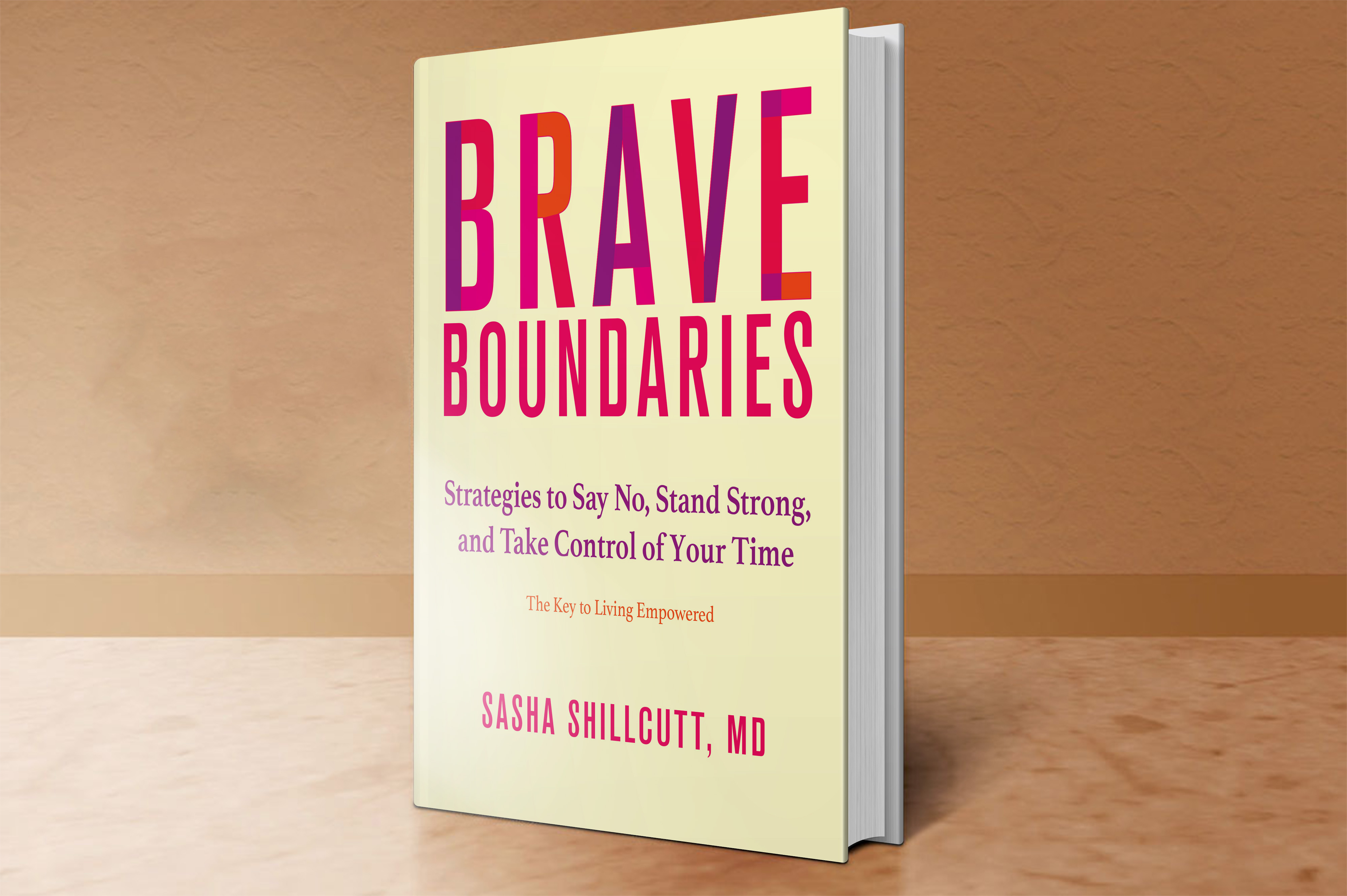Physician Burnout: Recognizing the Warning Signs and Taking Action
Mar 03, 2023
As a woman physician, I know firsthand the unique challenges that come with working in the medical field. From long hours to high-stress situations, the demands of our profession can take a toll on our physical, emotional, and mental health. One of the most significant risks we face, which is burnout, is a state of emotional, physical, and mental exhaustion that can leave us feeling overwhelmed and disconnected. Here in this blog you'll find out how to notice the warning signs as three red flags that you are burned out and how to take action.
In my role as a physician, I often find myself moving forward despite feeling tired, exhausted, and overwhelmed. I have become so certain that I must fulfill my responsibilities that it's tough to spot a red flag when burnout is happening to me.
Let me ask you this: Are you guilty of experiencing the same situation?
Women physicians are known to be some of the most responsible, toughest, and most persevering people in this field. We are accustomed to negative feelings. I understand that the majority of the time, we tell ourselves that physician burnout is not real, or we are just tired or stressed. That all these emotions will just pass. Then one day, we find ourselves drowning and staring burnout right in the face, and we don't know how to reverse it.
Let me share this with you: Physician burnout is a real thing. It is something that affects many doctors, regardless of specialty or level of experience. It can be scary to think about, but the truth is that we need to dismiss our feelings when we realize we are burned out. By recognizing the warning signs of burnout and taking action to address them, we can regain control of our well-being and continue to provide the best possible care to our patients. So, don't let the fear of burnout hold you back from being the best physician you can be.
What is Burnout?
Burnout is more than just a mental state; it is a real problem that affects us and many aspects of our life. It is a state of emotional, physical, and mental exhaustion caused by chronic and high-stress levels, which we all get to pick up, especially in our workplace environment. It frequently occurs when we are overwhelmed, emotionally exhausted, and under pressure to meet the constant demands of daily life, most particularly the mundane and recurring tasks we get to have as physicians. Does this sound familiar to you?
Burnout happens when stress builds up, whether from work or other sources. Because of burnout, we begin to lose drive, interest, and motivation to do things. And if you think the things you love and enjoy doing are exempt from this, they are not, my friend! All of this stress will eventually lead to burnout, which will leave us with a lack of productivity, energy, passion, and motivation to keep going.
Is it Normal?
If you're feeling burnt out right now, I'm here to tell you that you are not alone. It's easy to think that we're the only ones struggling, but in the field of medicine, burnout is unfortunately all too common. This is especially true for us women physicians, who often face unique challenges and pressures. And believe me, I've been there too, countless times. But here's the thing: it's important not to invalidate ourselves when we're feeling burned out. We work in a demanding field, and it's completely normal to feel overwhelmed at times. If you are curious about burnout, and whether you have it, I invite you to listen to my podcast The Brave Enough Show Season 1: I go in detail about my own burnout and how I came out of it.

The key is to recognize the signs of burnout and take action to prevent it from taking over our lives.
We are all only human, so at the end of the day, our bodies, minds, and emotions need and deserve to rest; it is not something we have to work for. We frequently program our minds to complete tasks as quickly as possible and to keep ourselves occupied and busy, so we forget to take a moment to slow down and breathe. Yes, being diligent is admirable, but let's not lose sight of the importance of patiently moving forward and paying attention to our own needs.
Spot these Three Major Red Flags
The emphasis on spotting when burnout crosses the line should not be underestimated if you are a woman physician. Sure, this job demands a busy lifestyle but when it seems you are doing too much, this is where burnout paves its way. It is now crossing It crosses the line between from being tired to too exhausted to function.
Burnout is a period defined by total physical, mental, and emotional exhaustion. You might find it difficult to participate in the kinds of activities you would normally find meaningful if you are burnt out. You might lose interest in the things that are significant to you, or you come to feel increasingly hopeless. We all know that the demands of our profession can take a toll on our well-being, but here's the good news: when burnout is looming, we can spot the red flags and take action to overcome it, gracefully.
You are Always On
Let's talk about burnout, shall we? As women physicians, we are accustomed to being busy and always on the go. It's part of the job we signed up for – rewarding, yet demanding. However, it's easy to get so caught up in our work and personal lives that we never stop to take a breath and reflect on how we're feeling. We just keep pushing through, and before we know it, the signs of burnout become our new normal. It's like we're running on autopilot, barely even noticing that something is wrong.
But here's a wake-up call: burnout should not is not be our normal, and it's not something we should just accept as part of the job. So, let me ask you this: do any of these red flags sound familiar?
- You're always working, even beyond your work hours.
- You don't enjoy your work anymore.
- You often feel like you're not doing a good job.
- You're not sleeping well.
- You feel tired all the time.
If one or more of these things statements resonates with you, it's time to take a step back and assess how you're feeling. Don't brush it off as just another normal day scenario. We deserve to feel fulfilled and energized, both in our work and in our personal lives. and we willWe should never let burnout win and steal our joy.
You Have Zero Time
Let's face it: , as working women, we have a lot on our plates. From taking care of our patients to managing our personal lives, it can feel like all too much. But it's crucial that we don't forget to take care of ourselves, too. With so many hours every day, aside from sleeping, I make sure to devote at least 30 minutes all for myself to myself. (Need 30 minutes to yourself? Check out my free guide HERE to get 2 hours back in your week.).
c
Given all the things on my plate, juggling the priorities I have for myself, my family, and for my work, I used to mismanage all the time I have for the day, leaving me with no time left to spare for myself and for activities that I truly enjoy. This situation is what I find common for women physicians, especially those who are still confused or struggle in setting boundaries between their work and personal life.
And if you're struggling with finding that balance, especially as a woman physician, I've got you covered. My book, Brave Boundaries, will help you set healthy boundaries and achieve a fulfilling work-life balance, all while keeping burnout at bay.

For this second red flag, burnout is coming right after you if one or all of these things any of these statements are what you are currently dealing with:
- You have no time for yourself.
- You are always on the go,
- You have no time to relax and pause.
- You have no time to spend with your loved ones.
- You have no time to do anything you enjoy.
These things for me are so important and I make sure to never overlook from time to time. And I want you to do the same for yourself. If you feel like the 24 hours each day seem like are not enough, that is the time to take a moment to check in with yourself and see if these signs are prevalent, daily. If yes, it’s the right time to take action upon it and not let burnout own you.
You Feel Like Your Work is Not Fulfilling Anymore
Have you ever found yourself feeling like your work is just not fulfilling anymore? It's a common experience, and it's especially prevalent among women physicians who are juggling the demands of this profession and their personal life. When we're constantly running on empty, it's easy to lose sight of the things that used to bring us joy and fulfillment in our work. Do these things ring a bell to you?
- You are not doing what you want to do.
- You are not doing what you love to do.
- You are no longer interested in what you are good at.
Here's the thing, feeling unfulfilled in our work is not something we should just accept as the new normal. We all deserve to feel like we're making a meaningful impact, both in our patient's lives and in our own. Let us aAllow ourselves yourself to explore some ways to reignite the passion and purpose in your work as a physician. Whether it's finding a new area of specialization that speaks to your interests, seeking out mentorship, or taking on new challenges that push you out of your comfort zone, there are so many ways to bring new energy and meaning to your work.
If these things are what you are currently looking for to keep burnout out of sight, Brave Balance will help you. Brave Balance is a 12-week masterclass that's designed to help you overcome burnout, set healthy boundaries, and define your life goals. Sign up today!

How Many Red Flags Are Too Many?
As a physician who has experienced burnout, I know firsthand how easy it can be to brush off the warning signs that my body and mind are giving. It's all too common to ignore the symptoms, push through the fatigue, and keep going until you hit a breaking point. But how many red flags are too many?
The truth is, there's no magic number. What's important is that we learn to recognize the warning signs and take them seriously. Whether it's feeling exhausted all the time, struggling to find joy in our work, or losing interest in the things that used to bring us happiness, every red flag is a signal that something needs to change. It's easy to fall into the trap of thinking that we can power through burnout and come out the other side unscathed. But the reality is that ignoring the red flags will only make things worse in the long run. The more we ignore these red flags, the more likely we are to experience serious physical and mental health consequences.
So, how many red flags are too many? The answer is simple: any red flag is too many.
The moment you notice something is off, it's time to take action. That could mean setting better boundaries at work, prioritizing self-care, or seeking professional help. Whatever it takes to get back on track and feel like yourself again, it's worth it.
Can Red Flags be Fixed?
It's easy to feel like things are spiraling out of control and that there's nothing you can do to fix it. But the truth is, red flags can be fixed - if you're willing to put in the work. It's important to remember that fixing red flags isn't a one-size-fits-all solution. What works for one person may not work for another. It takes time, patience, and a willingness to experiment and try new things until you find what works best for you.
It may not be easy, and it may require some hard work and uncomfortable conversations, but it's worth it. Because at the end of the day, we deserve to live a life that's happy, healthy, and fulfilling. So, sister, if you're seeing red flags in your life, don't give up hope. You can fix this, and you will.
Prevention is Key
I can't stress enough the importance of prevention when it comes to burnout. When we are in the thick of it, it can feel like there's no way out. But the truth is that with the right prevention measures in place, we can avoid the risk of burnout. Prevention starts with self-awareness. And self-awareness comes from how well we know and listen to ourselves. It's easy to get sucked into the never-ending cycle of our work, but it's important to remember that there's more to life than just our jobs.
As working women, we are committed to caring for others, but let's not forget that we also have a responsibility to take care of ourselves. As the saying goes, we cannot pour from an empty cup, and that's why preventing burnout should be a top priority for all of us. Remember, taking care of yourself is not selfish. We must be at our best mentally, emotionally, and physically.
And if burnout does come knocking, use it as an opportunity to learn and grow. It is never too late to master the art of winning against burnout and live our best lives as empowered, balanced, and fulfilled women physicians.
Join Brave Balance and keep burnout out of sight. Brave Balance is a 12-week masterclass that's designed to help you overcome burnout, set healthy boundaries, and define your life goals. Sign up today!
Feeling stretched thin? I can show you 10 ways to get back TWO HOURS in your week!
DOWNLOAD MY FREE TOOLKIT AND GET BACK HOURS OF TIME IN YOUR WEEK.
YES, YOU CAN.
We hate SPAM. We will never sell your information, for any reason.


